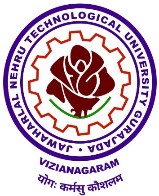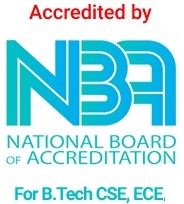The following are Graduate Attributes for UG Engineering Programme:
POs
PO# | Graduate Attributes | PO statements |
1 | Engineering knowledge: | Apply the knowledge of calculus,
trigonometry, co-ordinate geometry, partial differential equations, numerical
methods in mathematics, and civil engineering fundamentals to find solution
of complex engineering problems. |
2 | Problem analysis: | Identify, formulate, review research literature on advanced design and modeling concepts and analyze complex civil engineering problems reaching substantiated conclusions using first principles of mathematics and engineering sciences. |
3 | Design/development of solutions | Design solutions for complex civil engineering problems and design structural elements that meet the specified needs with appropriate consideration for the societal requirements and environmental considerations. |
4 | Conduct investigations of complex problems: | Use research-based knowledge and research methods including design of experiments, analysis and interpretation of data information in civil engineering to provide valid conclusions. |
5 | Modern tool usage: | Create, select, and apply Finite Element Modelling based technique sources and using software tools AUTOCAD, STAAD.Pro to predict behaviour of the structure and modelling of complex engineering structures. |
6 | The engineer and society: | Apply reasoning informed by the contextual knowledge to assess societal, health and safety issues and the consequent responsibilities relevant to the civil engineering practice. |
7 | Environment and sustainability: | Understand the impact of the civil engineering solutions in societal and environmental contexts, and demonstrate the knowledge and need for sustainable development. |
8 | Ethics: | Apply ethical principles and commit to professional ethics and responsibilities and norms of the civil engineering practice. |
9 | Individual and team work | Function effectively as an individual, and as a member or leader in diverse professional teams, and in multidisciplinary settings. |
10 | Communication | Communicate effectively on complex civil engineering activities with the engineering community and with society at large, such as, being able to comprehend and write effective design documentation, make effective presentations, and give and receive clear instructions. |
11 | Project management and finance: | Demonstrate knowledge and understanding of the civil engineering and management principles and apply these to one’s own work, as a member and leader in a team, to manage projects and in multidisciplinary environments. |
12 | Life-long learning: | Recognize the need for, and have the preparation and ability to engage in independent and continuous learning in the discipline of civil engineering. |
PEOs
Sl.No. | PEO# | Program educational objectives |
1 | PEO1 | To promote lifelong self learning abilities for gaining multidisciplinary knowledge through projects and industrial training to meet the social needs. |
2 | PEO2 | To promote lifelong self learning abilities for gaining multidisciplinary knowledge through projects and industrial training to meet the social needs. |
3 | PEO3 | To sensitize students towards social issues and to introduce them to professional ethics and practices. |
PSOs
Sl.No. | PSO# | Program educational objectives |
1 | PSO1 | Enhancing the employability skills by making the students capable of qualifying National level competitive examinations. |
2 | PSO2 | Inculcating in students technical competencies to deal with practical aspects of civil engineering. |
3 | PSO3 | Cognizance of social awareness and environmental necessity along with ethical responsibility to have a successful career and to become an entrepreneur. |

